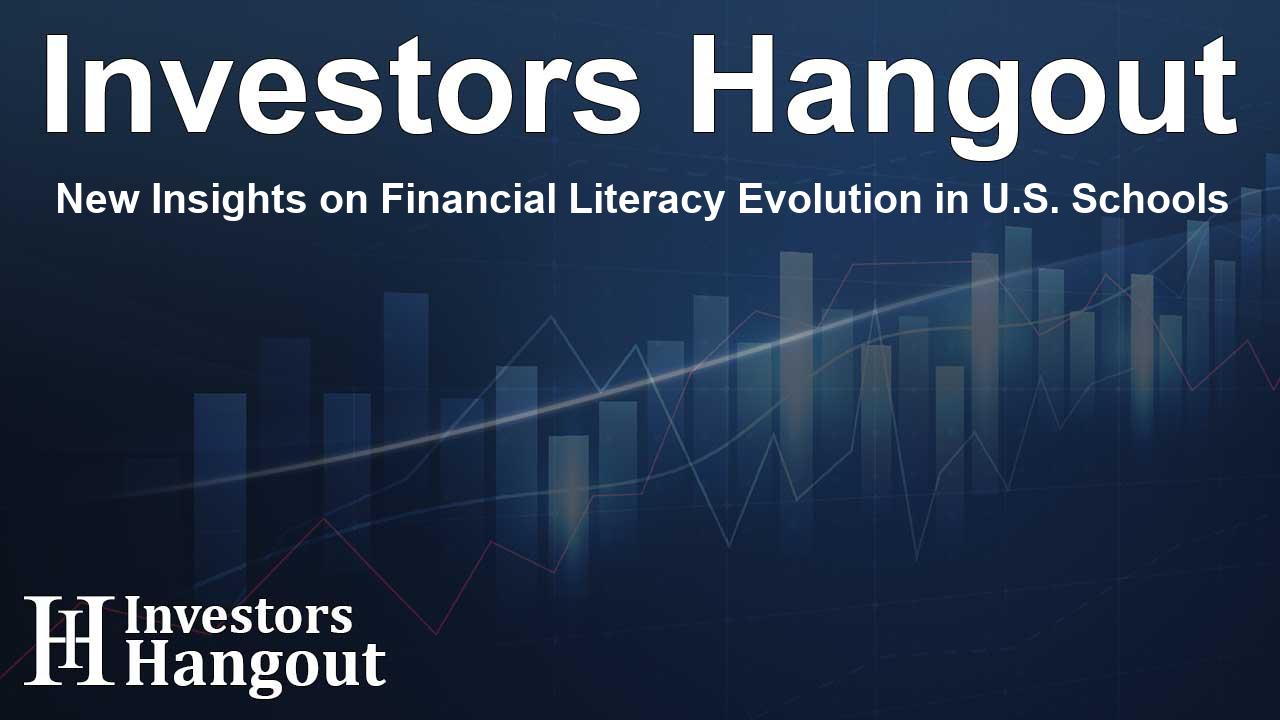New Insights on Financial Literacy Evolution in U.S. Schools

Understanding Financial Literacy in U.S. Schools
APEF has unveiled its latest findings in the 2025 Nation's Report Card on Financial Literacy, providing a meaningful insight into how states across the United States are preparing K-12 students for financial management. This comprehensive oversight reflects both advancements and gaps in personal finance education within American classrooms.
Current State of Financial Education
This evaluation arrives at a time when household debt has surged to an astonishing $18.39 trillion, and student loan debt has ballooned to $1.814 trillion. Many Americans are also navigating the challenging waters of inflation and rising interest rates, exacerbated by financial strains related to recent economic disruptions. Understanding these dynamics is crucial for students preparing to step into adult responsibilities.
The Role of Financial Literacy
David Pickler, the Executive Director of APEF, emphasized the significance of financial literacy, stating, 'Too many students graduate without the financial knowledge they need to navigate adult life.' He underlined that this issue extends beyond education and taps into vital areas like economic stability, mental health, and community wellbeing.
Evaluating State Performance
The report employs a rigorous grading system based on several key criteria, including:
- Implementation of K-12 financial literacy standards
- Requirements for a stand-alone personal finance course for high school graduation
- Integration of financial education concepts across all K-12 levels
- Availability of statewide assessments and resources for financial literacy
Since the last assessment in 2023, a noteworthy 12 states or territories have made strides in improving their financial literacy grades. However, many states continue lacking basic personal finance instruction, which prepares students inadequately for real-world financial responsibilities like budgeting, tax filing, credit management, and comprehending student loan consequences.
Linking Financial Literacy to Overall Wellbeing
The findings also draw attention to the correlation between poor financial literacy and increasing levels of stress, deteriorating mental health, and strained relationships. Moreover, findings reveal that a striking 41% of parents hesitate to discuss financial matters with their children, underlining the critical role schools must undertake in equipping the future generation with necessary life skills.
A Call to Action for Financial Education
David Pickler articulates APEF's fundamental goal: 'every student in every state should graduate financially literate.' This report serves as both an informative tool and a call for action aimed at policymakers, educators, and communities alike.
The complete 2025 Nation's Report Card on Financial Literacy is accessible for download on the official website, a resource meant to empower educators and citizens in promoting financial education.
About APEF
APEF operates as a nonprofit focused on enhancing public education and advocating for financial literacy across the U.S. The organization collaborates with educators and policymakers to ensure all students are poised for lifelong financial success.
Frequently Asked Questions
What is APEF's 2025 Nation's Report Card about?
The report evaluates how well U.S. states are equipping K-12 students with financial literacy skills essential for adult life.
Why is financial literacy important?
Financial literacy helps individuals manage personal finance better, leading to improved mental health, relationships, and overall economic stability.
How many states have improved their financial literacy grades?
Since the last report, 12 states or territories have made enhancements in their financial literacy grades.
What are the key criteria used for grading states?
States are graded based on K-12 financial literacy standards, personal finance course requirements, integration of finance concepts, and resource availability.
How can schools contribute to financial literacy?
Schools play a vital role by implementing financial literacy programs, integrating financial concepts into their curricula, and fostering discussions about money management at an early age.
About The Author
Contact Caleb Price privately here. Or send an email with ATTN: Caleb Price as the subject to contact@investorshangout.com.
About Investors Hangout
Investors Hangout is a leading online stock forum for financial discussion and learning, offering a wide range of free tools and resources. It draws in traders of all levels, who exchange market knowledge, investigate trading tactics, and keep an eye on industry developments in real time. Featuring financial articles, stock message boards, quotes, charts, company profiles, and live news updates. Through cooperative learning and a wealth of informational resources, it helps users from novices creating their first portfolios to experts honing their techniques. Join Investors Hangout today: https://investorshangout.com/
The content of this article is based on factual, publicly available information and does not represent legal, financial, or investment advice. Investors Hangout does not offer financial advice, and the author is not a licensed financial advisor. Consult a qualified advisor before making any financial or investment decisions based on this article. This article should not be considered advice to purchase, sell, or hold any securities or other investments. If any of the material provided here is inaccurate, please contact us for corrections.
